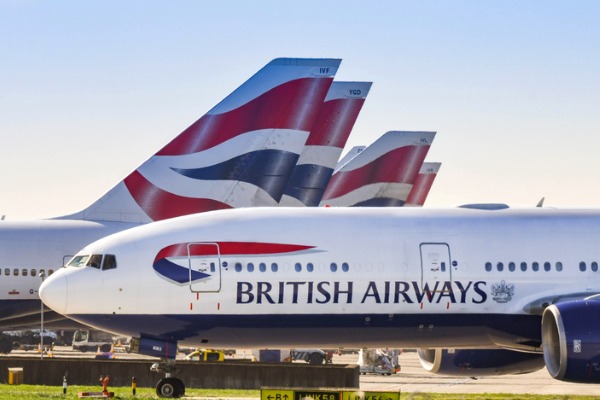IAG’s path to recovery is a long-haul journey
24th February 2023 08:55
by Richard Hunter from interactive investor
The path ahead is one that will need careful and constant monitoring as the airline attempts to regain its financial footing, says Richard Hunter.

Compared to recent years, International Consolidated Airlines (LSE:IAG) is flying high as the return to travelling normality continues apace. However, the path to full recovery is a long-haul journey.
Capacity reached 78% of pre-pandemic levels for the year, and promisingly hit 87% for the final quarter, suggesting ongoing momentum. Among the brands, British Airways was at 70% and Vueling at 98% as the level of pent-up demand continued to wash through, and any cost of living crisis took a back seat as passengers returned in numbers to the skies, even amid higher ticket prices. Indeed, the group is forecasting a return to 98% of pre-pandemic levels as the current year unfolds.
- Invest with ii: Share Dealing with ii | Open a Stocks & Shares ISA | Our Investment Accounts
A pre-tax profit for the year of €415 million compares with a loss of €3.5 billion the year previous, and exceeds expectations for a number of €398 million. Similarly, operating profit came in at €1.26 billion, again ahead of estimates, and a significant swing from the previous loss of €2.8 billion. This was largely enabled by a surge in revenues, which rose from €8.46 billion to €23.07 billion, with premium leisure performing strongly and with passenger unit revenue ahead by 11% compared to pre-pandemic.
However, the journey ahead is one which will need careful and constant monitoring as the airline attempts to regain its financial footing.
Airline stocks have long been a traditionally hazardous investment, variously affected by virus outbreaks, industrial action, volcanic dust clouds and higher fuel costs. The pandemic added another level of issues, such as for the business class travel which was such a strength of the British Airways offering, and where the adoption of apps such as Teams and Zoom has severely reduced the need for face-to-face meetings.
- FTSE 100 price shocks after year of war in Ukraine
- Rolls-Royce: what’s behind the stunning rally?
- What’s gone wrong with the stock market?
For the last year, fuel costs have perhaps unsurprisingly risen by 30% and non-fuel costs by 24% compared to pre-pandemic, with a volatile oil price and supplier cost inflation playing havoc with financial forecasting. At the same time, profits were reduced by a currency headwind of €322 million, with the strength of the US dollar playing against the group’s operating model.
IAG has a major task in repairing its balance sheet after the pandemic tore through revenues and forced the group into substantial borrowings. Over the last year, net debt reduced by €1.3 billion given the higher levels of business, but still remains uncomfortably high at €10.4 billion and somewhat concerningly seems unlikely materially to reduce further in the coming year according to the group’s outlook. While access to liquidity remains high, as the balance sheet repair continues the return to a dividend payment simply cannot be countenanced, and this is likely to remain the case for some considerable time to come.
The share price performance also puts the scale of the recovery into context. Despite a jump of some 55% over the last six months, the shares have risen by just 5% over the last year, as compared to a hike of 9.7% for the wider FTSE 100. Over both a three and five-year period, the shares remain down by 60%. However, and regardless of the headwinds which are currently in plain sight, for the moment the direction of travel is positive. As such, the market consensus of the shares as a buy reflect optimism for further growth prospects.
These articles are provided for information purposes only. Occasionally, an opinion about whether to buy or sell a specific investment may be provided by third parties. The content is not intended to be a personal recommendation to buy or sell any financial instrument or product, or to adopt any investment strategy as it is not provided based on an assessment of your investing knowledge and experience, your financial situation or your investment objectives. The value of your investments, and the income derived from them, may go down as well as up. You may not get back all the money that you invest. The investments referred to in this article may not be suitable for all investors, and if in doubt, an investor should seek advice from a qualified investment adviser.
Full performance can be found on the company or index summary page on the interactive investor website. Simply click on the company's or index name highlighted in the article.